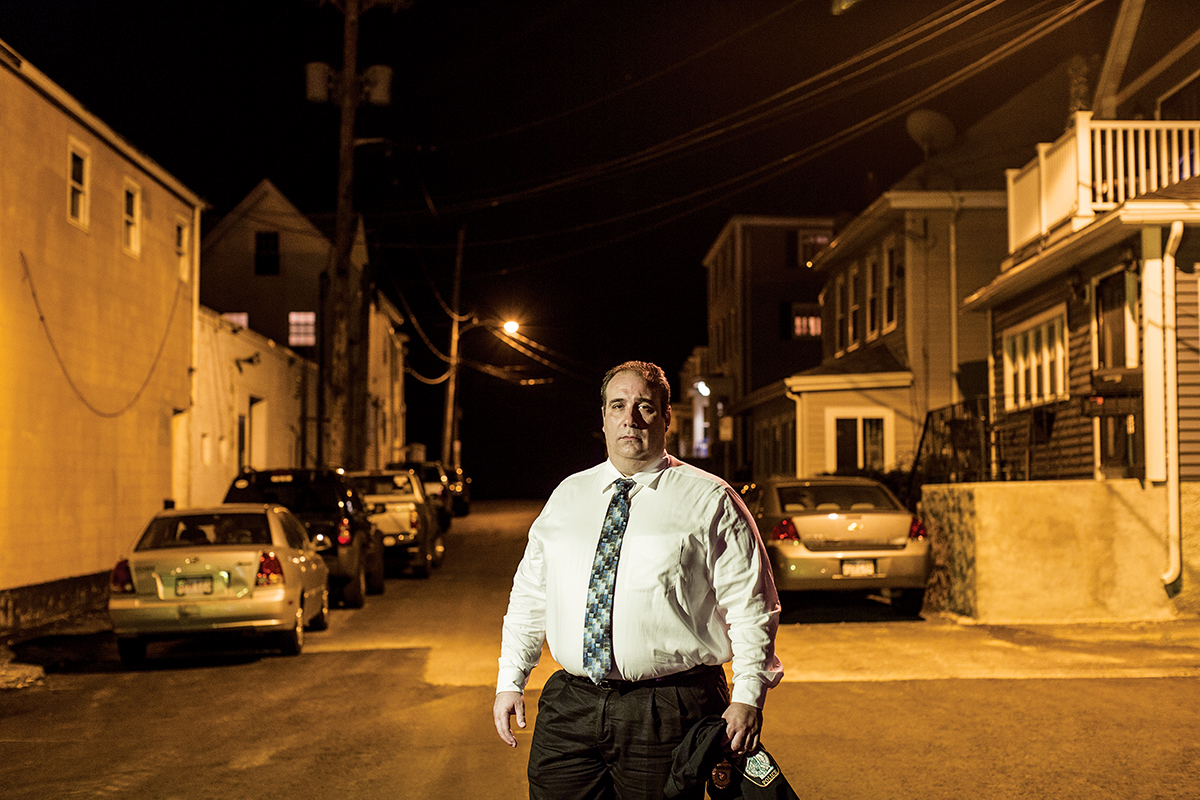Gloucester Police Chief Placed on Leave

Gloucester Police Chief Leonard Campanello/ Photograph by Jesse Burke from “Police Chief Leonard Campanello’s New Fight Against the Heroin Crisis“
Update 11:20 a.m.: The Globe has reported that Campanello’s attorney says the investigation has nothing to do with the chief’s policing duties and that he expects “Chief Campanello will be quickly and expeditiously returned to his position as Chief of Police for the City of Gloucester” after the facts of the case are reviewed. Meanwhile, Campanello told the Gloucester Times he has “no concerns in my personal or professional life that I’ve done anything wrong to warrant any action against me.”
Earlier:
Gloucester Mayor Sefatia Romeo Theken announced Tuesday night that the city’s police chief, Leonard Campanello, has been placed on leave pending an internal investigation. Theken did not explain the focus of the internal investigation or provide additional details on the decision, according to the Gloucester Times.
Campanello came to prominence in the spring of 2015 after announcing on Facebook that his police department would grant amnesty to opioid addicts and streamline them into medical treatment instead of jail.
The move garnered national praise and ample media coverage, including a 2015 profile in this magazine. The White House later honored Campanello as one of its “Champions of Change.”
Along the way, Campanello has proven to be a vocal critic of insurers and pharmaceutical companies, and he has clashed with the Essex County district attorney, who noted in a letter to Campanello that police chiefs don’t have the authority to make “an explicit promise not to charge a person who unlawfully possess drugs.”
Campanello, who did not respond to a request for comment for this story, is the cofounder and active board member of The Police Assisted Addiction and Recovery Initiative, a nonprofit that was set up soon after he announced his new approach to policing.
The group is focused on helping police departments around the country find new approaches to policing the opioid epidemic. In July, PAARI announced that it partnered with Adapt Pharma, which agreed to provide 10,000 doses of naloxone, the overdose reversal drug.
In 2015, there were 1,531 opioid-related deaths in Massachusetts. The crisis has shown few signs of abating, as the Department of Public Health estimates that fatal overdoses in the first six months of 2016 outpaced the number of overdoses in the same period of 2015.


